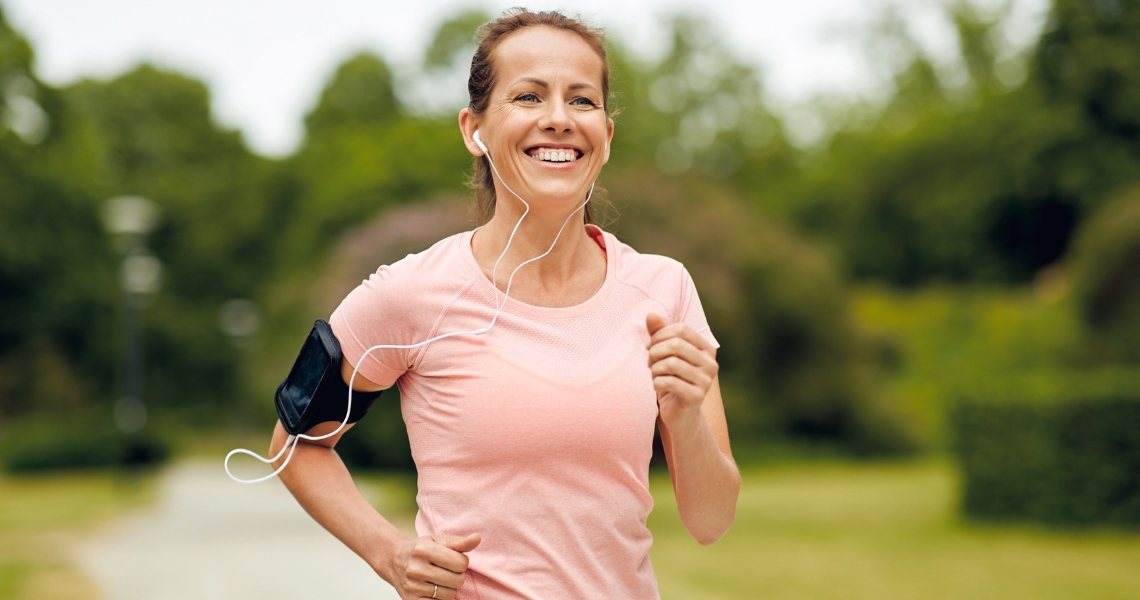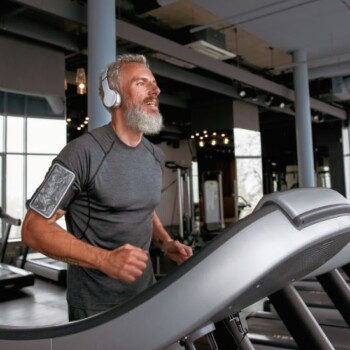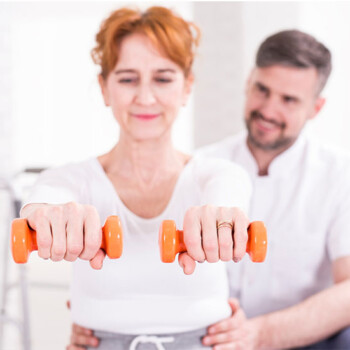Article Summary
Women navigating menopause explore diverse treatments like HRT, BHRT, lifestyle adjustments, and integrative therapies. Integrative medicine clinics offer personalized care, addressing physical and emotional well-being. Empower Pharmacy provides access to a wide range of solutions for menopause management.Women facing menopausal symptoms may look to a variety of treatments that have gained in popularity, including bioidentical hormone replacement therapy, lifestyle changes, mind-body therapies, and discovering a doctor who takes an integrative approach. During the menopause transition, for women between the ages of 45 and 55, patients experience a range of physical and emotional symptoms due to hormonal fluctuations. Hormone replacement therapy (HRT) has long been a popular treatment option for managing menopause symptoms.[1] However, in recent years, the landscape of menopause treatments has expanded to include various integrative therapies. This article aims to explore the most recent trends in menopause treatments, focusing on HRT and integrative approaches, to provide women with valuable insights and options for managing their menopausal transition.
1. Hormone Replacement Therapy (HRT) & Bioidentical Hormone Therapy (BHRT)
When it comes to prescribing treatments for menopause, Hormone Replacement Therapy (HRT) and Bioidentical Hormone Therapy (BHRT) differ. HRT is a prominent treatment option involving the use of synthetic hormones to supplement declining hormone levels during menopause. BHRT aims to provide a more natural and individualized approach to hormone replacement. Bioidentical hormones are derived from plant sources and have a molecular structure identical to hormones naturally produced in the body.[2] While research is ongoing, many women are turning to BHRT as an alternative to traditional HRT.[3]
Recent trends in HRT focus on personalized approaches, lower dosages, and alternative delivery methods. HRTs popularity was at a high in the 1980s and 1990s, though it has been around since the early 1900s. 42% of all American women between the ages of 50 and 75 were taking hormones in 2001.[4] The popularity of HRT however was paused after the Women’s Health Initiative analyzed the safety of hormone replacement therapy (HRT) for women conducted in the US and suggested postmenopausal HRT could increase women’s risks of stroke and breast cancer.[4] Since then, studies were conducted to reveal the benefits of HRT, its effects on cardiovascular disease, and reduction on mortality. In 2015 a study estimated that about 1 to 2.5 million women, over the age of 40, in the US use compounded hormone therapy.[5]
2. Lifestyle Modifications
Integrative approaches to menopause treatment highlight the importance of lifestyle modifications. Regular exercise, a healthy diet, stress reduction techniques, and adequate sleep are essential for managing menopause symptoms. These lifestyle changes, along with complementary therapies, can significantly improve overall well-being.[6][7][8]
3. Mind-Body Therapies
Techniques such as yoga, meditation, and deep breathing exercises have gained popularity among menopausal patients. These mind-body therapies are thought to help reduce stress, promote relaxation, and improve sleep quality, thereby managing menopause symptoms and enhancing overall mental and emotional well-being.[9]
4. Herbal and Dietary Supplements
Various herbal supplements and dietary modifications are gaining attention as complementary therapies for menopause symptom relief. Examples include black cohosh, evening primrose oil, and red clover.[10][11] However, it’s important for patients to consult with healthcare professionals before incorporating any supplements into their routine, as their efficacy and safety vary.
5. The Rise of the Integrative Approach:
Two in three adults aged 50-80 years old have tried at least one integrative medicine strategy to prevent or treat a health concern, according to a National Poll on Healthy Aging (2022) of over 2,000 participants.[12] The rise of integrative medicine clinics offers women a holistic approach to aging and menopause management. These clinics combine conventional medical treatments with complementary therapies, providing personalized care plans tailored to individual needs. Menopause health outcomes are optimized by addressing the whole person, including body, mind, and spirit.
- Cleveland Clinic. (2022, April 15). Bioidentical hormones: Therapy, Uses, Safety & Side effects. Cleveland Clinic. https://my.clevelandclinic.org/health/articles/15660-bioidentical-hormones
- Ruiz, A. D., Daniels, K. R., Barner, J. C., Carson, J. J., & Frei, C. R. (2011). Effectiveness of compounded bioidentical hormone replacement therapy: an observational cohort study. BMC women’s health, 11, 27. https://doi.org/10.1186/1472-6874-11-27 https://pubmed.ncbi.nlm.nih.gov/21651797/
- Files JA, Ko MG, Pruthi S. Bioidentical hormone therapy. Mayo Clin Proc. 2011 Jul;86(7):673-80, quiz 680. doi: 10.4065/mcp.2010.0714. Epub 2011 Apr 29. PMID: 21531972; PMCID: PMC3127562. Or https://www.ncbi.nlm.nih.gov/pmc/articles/PMC3127562/
- Fishman JR, Flatt MA, Settersten RA Jr. Bioidentical hormones, menopausal women, and the lure of the “natural” in U.S. anti-aging medicine. Soc Sci Med. 2015 May;132:79-87. doi: 10.1016/j.socscimed.2015.02.027. Epub 2015 Feb 19. PMID: 25795991; PMCID: PMC4400226. https://www.ncbi.nlm.nih.gov/pmc/articles/PMC4400226/
- Pinkerton JV, Santoro N. Compounded bioidentical hormone therapy: identifying use trends and knowledge gaps among US women. Menopause. 2015 Sep;22(9):926-36. doi: 10.1097/GME.0000000000000420. PMID: 25692877; PMCID: PMC4547729. Or https://www.ncbi.nlm.nih.gov/pmc/articles/PMC4547729/#:~:text=Conclusions%3A,or%20approved%20by%20the%20FDA.
- Mayo Foundation for Medical Education and Research. (2022c, December 3). Fitness tips for menopause: Why fitness counts. Mayo Clinic. https://www.mayoclinic.org/healthy-lifestyle/womens-health/in-depth/fitness-tips-for-menopause/art-20044602
- Cleveland Clinic. (2022, July 5). Menopause Diet: What To Eat To Help Manage Symptoms. Clevelandclinic.org. https://health.clevelandclinic.org/menopause-diet/
- Samami E, Shahhosseini Z, Elyasi F. The effects of psychological interventions on menopausal hot flashes: A systematic review. Int J Reprod Biomed. 2022 May 23;20(4):255-272. doi: 10.18502/ijrm.v20i4.10898. PMID: 35822187; PMCID: PMC9260068. https://www.ncbi.nlm.nih.gov/pmc/articles/PMC9260068/
- Vaze N, Joshi S. Yoga and menopausal transition. J Midlife Health. 2010 Jul;1(2):56-8. doi: 10.4103/0976-7800.76212. PMID: 21716773; PMCID: PMC3122509. https://www.ncbi.nlm.nih.gov/pmc/articles/PMC3122509/
- Johnson A, Roberts L, Elkins G. Complementary and Alternative Medicine for Menopause. J Evid Based Integr Med. 2019 Jan-Dec;24:2515690X19829380. doi: 10.1177/2515690X19829380. PMID: 30868921; PMCID: PMC6419242. Or https://www.ncbi.nlm.nih.gov/pmc/articles/PMC6419242/
- Mehrpooya M, Rabiee S, Larki-Harchegani A, Fallahian AM, Moradi A, Ataei S, Javad MT. A comparative study on the effect of “black cohosh” and “evening primrose oil” on menopausal hot flashes. J Educ Health Promot. 2018 Mar 1;7:36. doi: 10.4103/jehp.jehp_81_17. PMID: 29619387; PMCID: PMC5868221. Or https://www.ncbi.nlm.nih.gov/pmc/articles/PMC5868221/
- Maciasz R, Kullgren J, Singer D, Solway E, Kirch M, Smith E, Malani P. Use of and Interest in Integrative Medicine Strategies. University of Michigan National Poll on Healthy Aging. July/August 2022. Available at: https://dx.doi.org/10.7302/4879 or https://deepblue.lib.umich.edu/bitstream/handle/2027.42/173048/0275_NPHA-Integrative-Medicine-report_FINAL-07252022-doi.pdf?sequence=4&isAllowed=y




